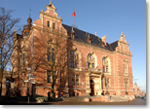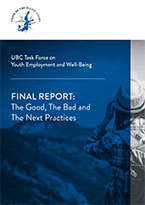Secretariat
Wały Jagiellońskie 1
80-853 Gdańsk Poland
tel. +48 58 301 09 17
tel. +48 58 301 91 23
fax +48 58 301 76 37
 Contact us
Contact us


Speech of the UBC President Mr Per Bødker Andersen at the European Conference on
THE ROLE OF BALTIC LOCAL AUTHORITIES IN RESPONDING TO MAJOR OIL SPILLS
Helsinki, 9-10 February 2004.
I guess we all bear in mind the dreadful pictures of sea-birds struggling for their lives, the fishermen looking in despair into an uncertain future, the white beeches washed black with oil and the hundreds of professionals and volunteers working hard to limit damages. Alaska, the Spanish coast and last year the Chinese wreck near Bornholm. The latter not an oil tanker, but oil-spill is a severe threat to nature, wherever it happens and whatever the reason. I am very glad to have this opportunity to thank the Conference of Local and Regional Authorities of the Council of Europe and the Finnish Association of Local and Regional Authorities for organizing to-days important gathering. Focusing on our fragile Baltic Sea also gives the cities an important opportunity to discuss, learn and prepare. I am fully aware, that the overall decisions on standards for oil-tankers or other vessels are not matters for the city councils around the Baltic Sea. Neither questions concerning routes for transportation of different kinds of goods or the question of obligatory use of pilots and the organisation of the necessary measures to be taken in case of incidents.
On the other hand, I represent 102 cities in the countries around our common Baltic Sea, many of which are placed near or directly at the coast. I am sure, You will all understand our interest in being part of the team-work necessary, if worst scenario should occur. The national and international discussion about one hull tankers do interest us as citizens and elected council members with responsibility for the environment. The different plans for actions at sea or on land also are important to us. And we are - of course - prepared to do our duty, where we fit into these action plans. The Union of the Baltic Cities respects the national interests and the international agreements and co-operation. We are - put in another way - not a Foreign Office, and do not act as one. We have another way of working together. We believe, that our citizens have the same interest in good-governance, in social security and in a clean environment independent of their nationality. Therefore we have put up common goals within different areas. One of the absolutely highly prioritized areas is environment. We all know how dependent we are of a clean sea, fresh drinking water, sustainable nature - be it rough or cultivated. Minimizing the use of artificial fertilizers and pesticides, acting according to Agenda 21 plans etc. etc. are important issues of our daily work in the cities. Our interest in participating in common plans in case of pollution from the sea is thus obvious. In order to get the job done well, we need to be prepared. We need good co-operation structures and plans comprising all the central players, and we need to train together. No team could win a game unless they practised together at least once before the game. My strong impression is that plans are generally quite well developed in the Baltic Sea Region countries. However, are we prepared well enough in terms of resources and playing together? Have we trained enough and do we have the ability to mobilise the technical and human resources in due time at the right place? I do have slight doubts. Plans and structures are not enough. In order to make such plans and structures really feasible in practice, more simulation and training involving the local authorities is needed. The Union of the Baltic Cities would be happy to contribute to - or even initiate - such rehearsals. Such rehearsal within countries would certainly be useful. However, as there are nine coastal states in the Baltic Sea, a major oil spill at sea could easily involve several countries. This sets extra challenges to the respond mechanisms. It is not enough that we are able to co-operate between the players within the respective countries. We also need to be able to co-operate across borders, and such cross-border co-operation and preparedness also needs to involve all the players. This kind of cross-border preparedness needs to be improved. The Union of the Baltic Cities has an outstanding experience in cross-border co-operation and building capacities of its member cities in several fields. We will also do our best to contribute to preparing municipalities for the challenges that a major oil spill at sea would impose. At the same time we hope that such preparedness would never be needed in practice. The Baltic Sea is a very unique sea and the Baltic Sea Region is a very special area in Europe. Our sea is a new (almost) inside sea in the European Union and our co-operation within the region is extremely strong on all levels of government as well as within the civic societies. This gives us good opportunities to create effective trans-national mechanisms and plans for reacting to oil spills. It also should give us possibilities to improve the safety of maritime transport and thereby decrease the likelihood of accidents to happen. The Union of the Baltic Cities is actively contributing to this work: 16 ports and port cities are for example at the moment co-operating to create common environmental policies and practices in one of our projects. Let us enhance our efforts within the Baltic Sea Region States, sub-regions and municipalities to tackle this major challenge.
And let us hope that our efforts will be a waste of good time and money - that the worst incident will never happen. But let us be prepared.
Thank You for Your attention.




